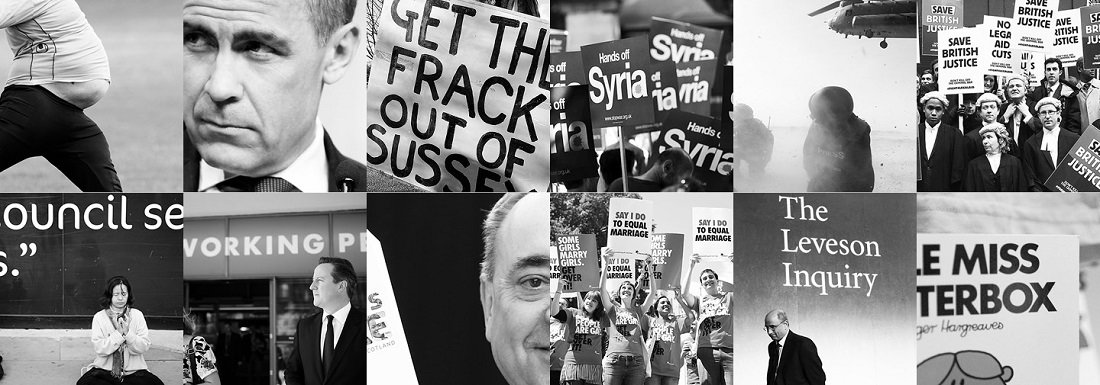Overview
2014 began with a policy ‘bang’, with the Prime Minister using his first interview of the year to commit to continuing the triple-lock on increases in old age pensions in the next Parliament. This first salvo of what will be a policy-heavy battle was aimed at exactly the people – the over 55s – whose support for the Conservatives and electoral turnout is greatest.
The Conservatives’ political strategy for the next 18 months is clear – pick issues where they believe Labour to be weak or out of touch and hammer home their attacks relentlessly.
It is significant that the Chancellor used his first intervention of the year to talk about the need for more cuts – the area where Labour is most vulnerable – and we will see further interventions on spending, welfare, immigration and Europe.
The Conservative part of the Coalition will seek to portray itself as the only political party capable of taking the tough decisions that Britain needs to thrive, and hope that Labour’s polling advantage on cost of living issues will erode as unemployment falls and wages begin to outstrip inflation. The Conservatives want to be, in their words, on the side of hard-working people. But to confound the durable impression, confirmed by Lord Ashcroft’s research, that they are the party of the rich will involve radical policy shifts for the manifesto. Backing an increase in the minimum wage has had an impact, but the party will be looking to offer more in 2015, with a big move on house-building the most likely area of focus.
2014 is a huge year for the opposition party. Having had some significant successes in the last two years, the leadership is confident. Helped by the Liberal Democrats being in government and the rise of UKIP, Labour believe they have assembled enough of a ‘coalition of the left’ to unseat the Prime Minister and put Ed Miliband in No.10. The huge gap in voting intentions of, for example, teachers – among whom Labour lead by 41% over Conservatives, with the Lib Dems doing even worse – is reassuring but other polling concerns remain, especially on leadership and economic competence.
Labour are convinced that enough of the public are ready to consider ‘varieties of capitalism’, a concept floated by Miliband’s key adviser Stewart Wood, and this year they will need to put policy flesh on the bones. The energy price freeze is fading in salience and popularity, and further concrete examples are needed of how a Labour government would help with the cost of living in an age of austerity.
The situation for the Liberal Democrats is, apparently, more bleak than at any other time during the last four years. Their polling figures show no sign of political recovery and they could well end up with no MEPs after the upcoming European elections. Yet they are quietly confident of retaining the majority of their Westminster seats and finding a permanent role in British politics as the great moderators.
As Sir Menzies Campbell has made clear, it is in the Lib Dems’ interests to ensure the Coalition ends well and that the public would contemplate similar arrangements in the future.
So Nick Clegg will be perfectly happy that the newspapers continue to cover his attacks on “ideological” Conservative Cabinet colleagues, and he wants more credit for keeping the public services out of private hands.
This strategy of fiscal credibility with a caring face is where Clegg wants to position the party, and in particular he wants the Lib Dems to be seen as on the side of working parents.
So the battle lines for the election are pretty clear – the Conservatives positioning themselves as the doctor whose medicine is finally beginning to cure the patient but needs more time. Labour will place themselves on the side of ordinary people, making sure that the fruits of recovery are not enjoyed solely by the best off. And the Liberal Democrats as the voice of reason, ensuring the wilder instincts of the main parties are not given free rein.
The fly in the ointment is, of course, UKIP. To describe them as policy-lite is an understatement, but their power comes from what they are not: the Westminster elite. All parties now have to factor this strand of anti-politics into their calculations, as the increasingly strident positions on immigration of both the Conservatives and Labour show. With the European Elections only months away, UKIP could have a profound effect on politics and policy in the next 18 months. Or they might not – only time will tell.
James is Portland’s Chief Policy Adviser. Before joining Portland, he was Director of Policy for David Cameron for four years, 2007-2011.
He was responsible for drafting the Conservative Party’s 2010 general election manifesto, co-authored the Coalition’s Programme for Government, and played a leading role in managing the Coalition Government’s policy programme during its first 18 months.

